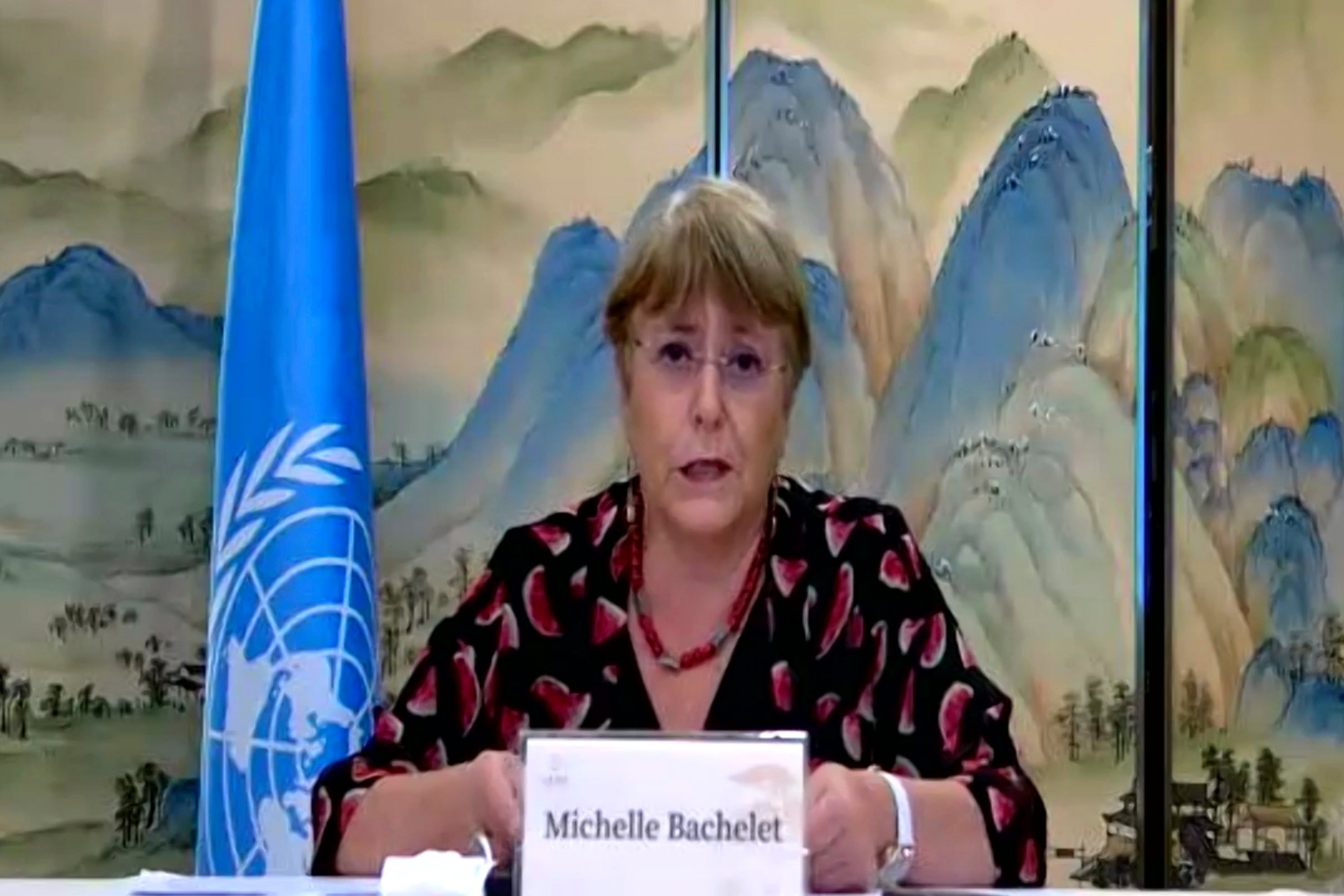UN human rights chief asks China to rethink Uyghur policies
The U.N. top human rights official says she raised concerns with Chinese officials about the impact of the broad application of counterterrorism and deradicalization measures on the rights of Uyghurs and other predominantly Muslim groups in China’s Xinjiang region

Your support helps us to tell the story
From reproductive rights to climate change to Big Tech, The Independent is on the ground when the story is developing. Whether it's investigating the financials of Elon Musk's pro-Trump PAC or producing our latest documentary, 'The A Word', which shines a light on the American women fighting for reproductive rights, we know how important it is to parse out the facts from the messaging.
At such a critical moment in US history, we need reporters on the ground. Your donation allows us to keep sending journalists to speak to both sides of the story.
The Independent is trusted by Americans across the entire political spectrum. And unlike many other quality news outlets, we choose not to lock Americans out of our reporting and analysis with paywalls. We believe quality journalism should be available to everyone, paid for by those who can afford it.
Your support makes all the difference.The U.N. top human rights official said Saturday that she raised concerns with Chinese officials about the impact of the broad application of counterterrorism and deradicalization measures on the rights of Uyghurs and other predominantly Muslim groups in China's Xinjiang region.
Michelle Bachelet, who visited Xinjiang as part of a six-day trip to China, said the visit was not an investigation but an opportunity to raise concerns with senior Chinese leaders and pave the way for more regular interactions to support China in fulfilling its obligations under international human rights law.
“It provides an opportunity for me to better understand the situation in China, but also for the authorities in China to better understand our concerns and to potentially rethink policies that we believe may impact negatively on human rights,” she said in a video news conference on the final day of her trip.
It's uncertain whether China's ruling Communist Party, which has vehemently denied all reports of human rights violations and genocide in Xinjiang, would change its polices. Bachelet's measured words, while expected, will likely not sit well with activists and governments such as the United States, which have been critical of her decision to visit Xinjiang.
Bachelet, making the first visit by a U.N. high commissioner for human rights to China in 17 years, said she raised the lack of independent judicial oversight for a system of internment camps that swept up a million or more Uyghurs and other ethnic minorities, according to estimates by experts.
China, which describes the camps as vocational training and education centers to combat extremism, says they have been closed. The government has never publicly said how many people passed through them.
Bachelet, who visited a prison and former center in the Xinjiang city of Kashgar, noted that the program relied on police to determine “tendencies toward extremism” and the allegations of use of force at the centers and unduly severe restrictions on religious practice.
“It is critical that counterterrorism responses do not result in human rights violations,” she said. “The application of relevant laws and policies and any mandatory measures ... need to be subject to independent judicial oversight with greater transparency in judicial proceedings,” she said.
Before her trip, she said she heard from Uyghur families living abroad that have lost contact with their loved ones. In her meetings in China, she said she raised a number of specific cases and appealed to authorities to take steps to provide information to families as a matter of priority.
“To those who have sent me appeals asking me to raise issues or cases with the authorities, I heard you," she said. “Your advocacy matters.”
The U.N. and China agreed to set up a working group to hold follow-up discussions on a range of issues, including the rights of minorities, counterterrorism and human rights, and legal protection, Bachelet said.